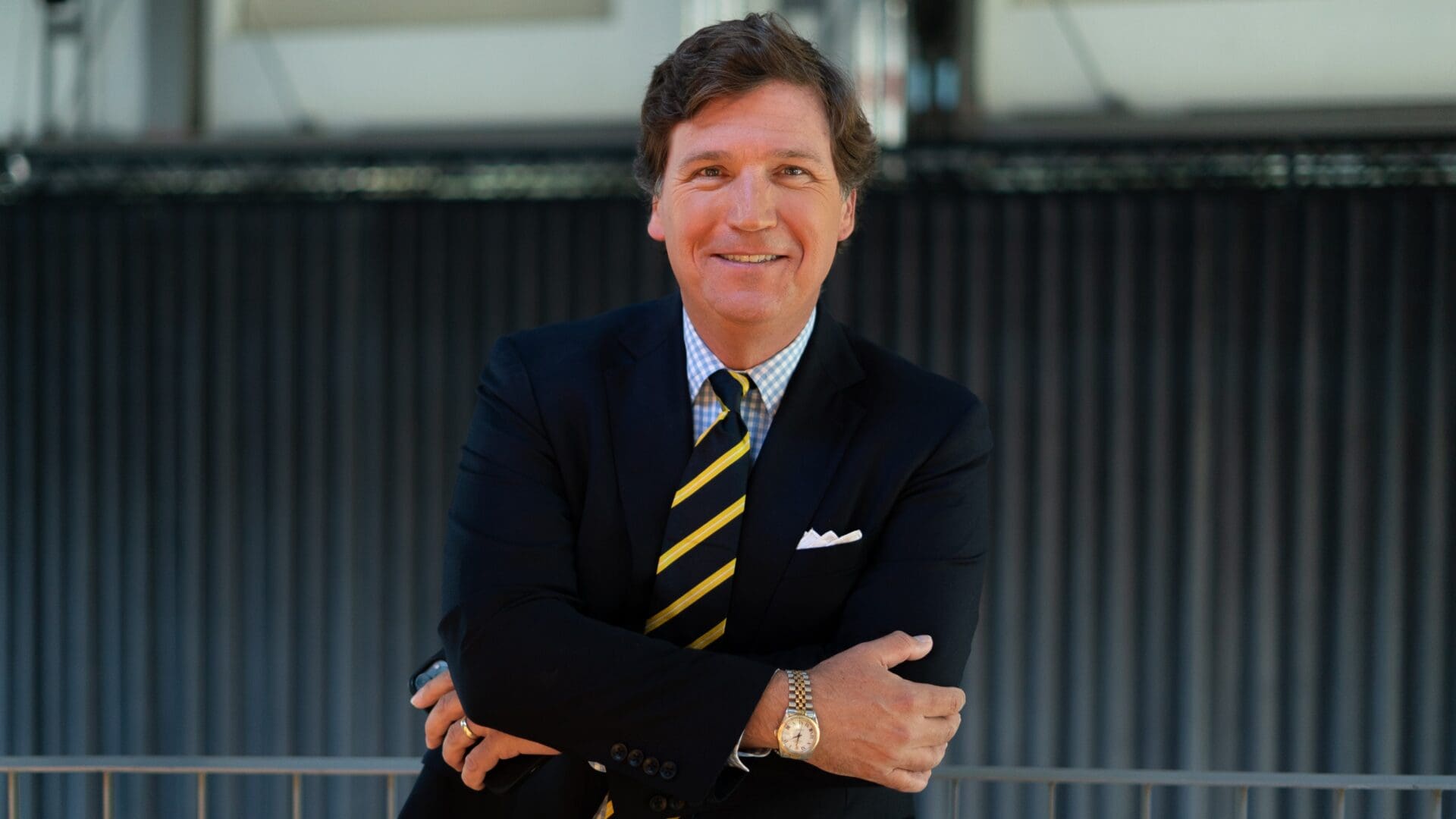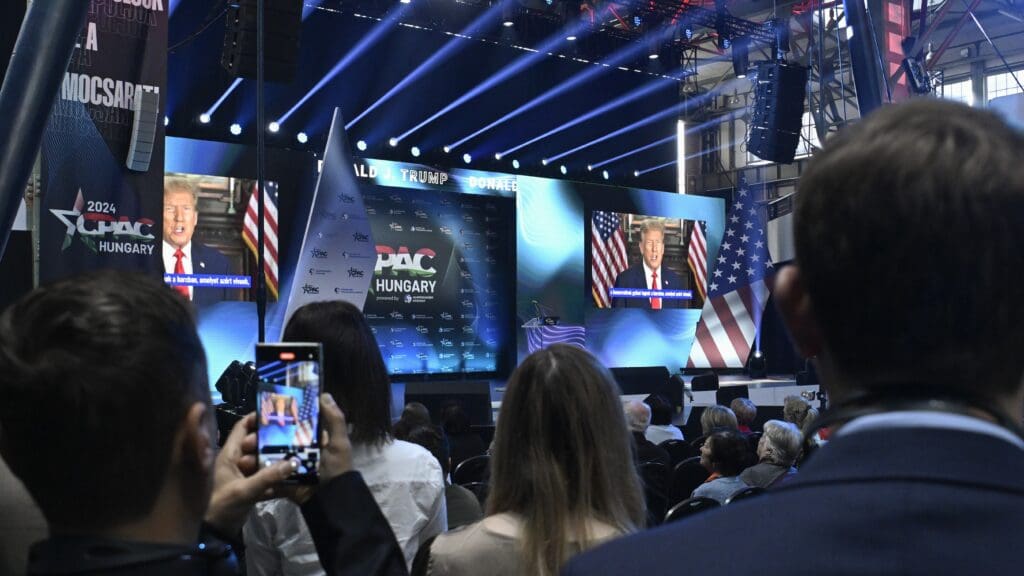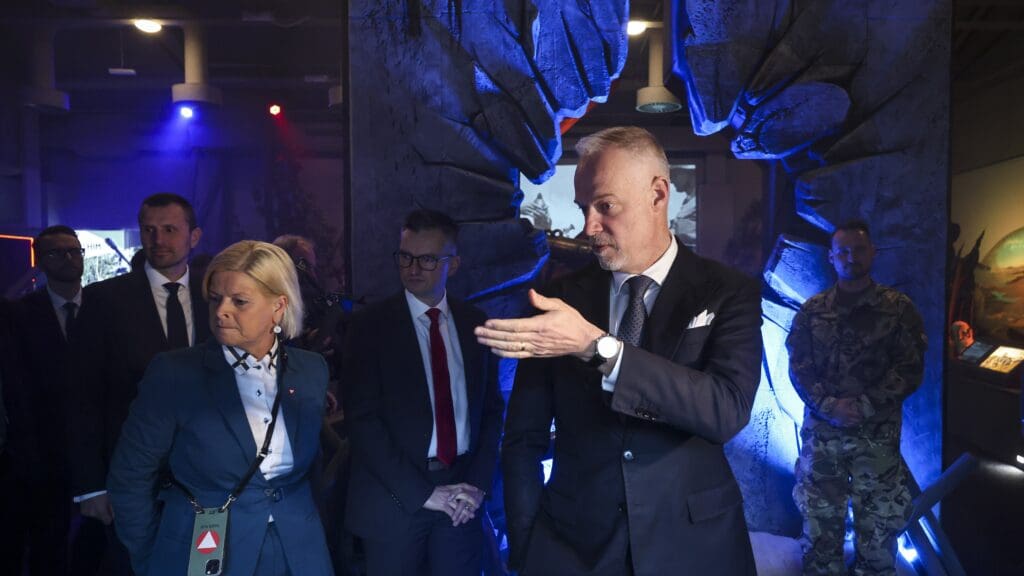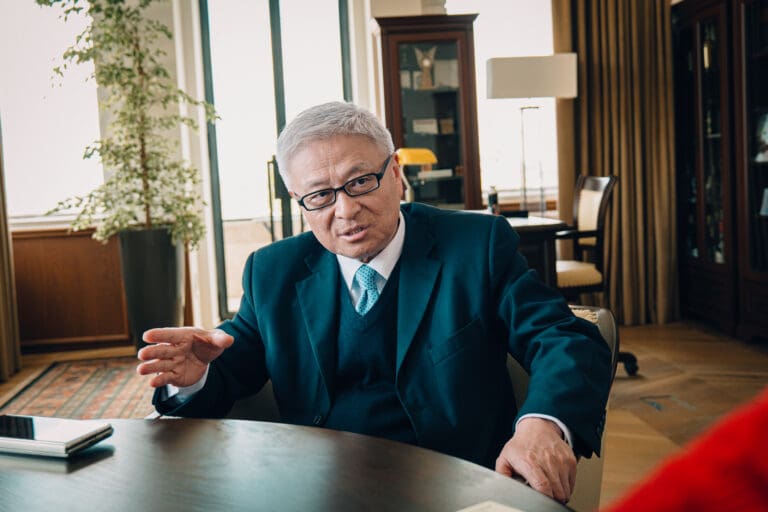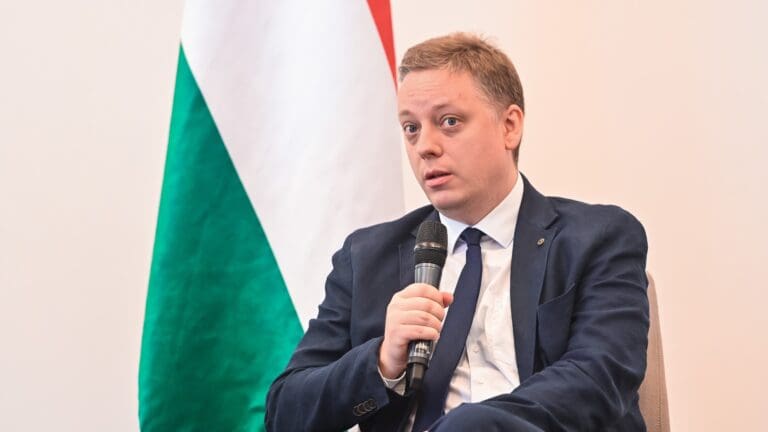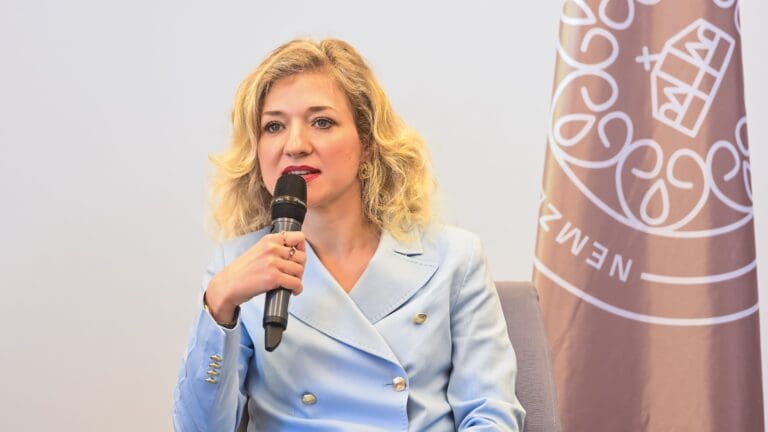Following his remarks and conversation with Political Director of the Prime Minister Balázs Orbán at the MCC Feszt After event earlier this week, Hungarian Conservative had the privilege to interview Tucker Carlson and ask him about his perceptions about Hungary, his views on the establishment media, the war on Ukraine and the isolation of the United States.
***
This is not your first trip to Hungary. Have you ever personally experienced any of the issues related to oppression that the mainstream media often discusses about this country?
You know I am not a Hungarian and I don’t speak the language and the Hungarian language is an obvious key to Hungary. So, I can’t really know a country whose language I can’t speak. But I tell you my perception: it is in every sense that I’ve experienced that your country is freer than the one I live in. I’m in the media – I’ve been in the media my whole life—and I can say that there is more freedom in the Hungarian media compared to the American. I am talking about a wider range of views. You are allowed to write a front-page editorial attacking Viktor Orbán if you want and the advertisers don’t pull their ads. You know there is no boycott of views. And that’s not the case for where I live at all. So, to comment on the idea that this is some sort of a totalitarian hell-state—maybe, but I haven’t noticed that. It reminds me of America in 1985.
So how would you comment on this framing?
Well, these voices are identical to the one saying that Ukraine is winning—it’s not. Ukraine is losing. So we are dealing with a lie, just like the one about men can become women. They can’t. It’s factually untrue. You can ascertain a person’s sex with his DNA which you cannot change. So, they are liars committed to lying. I don’t think it’s unwitting or accidental. I worked for mainstream media most of my life—I couldn’t have more contempt for them.
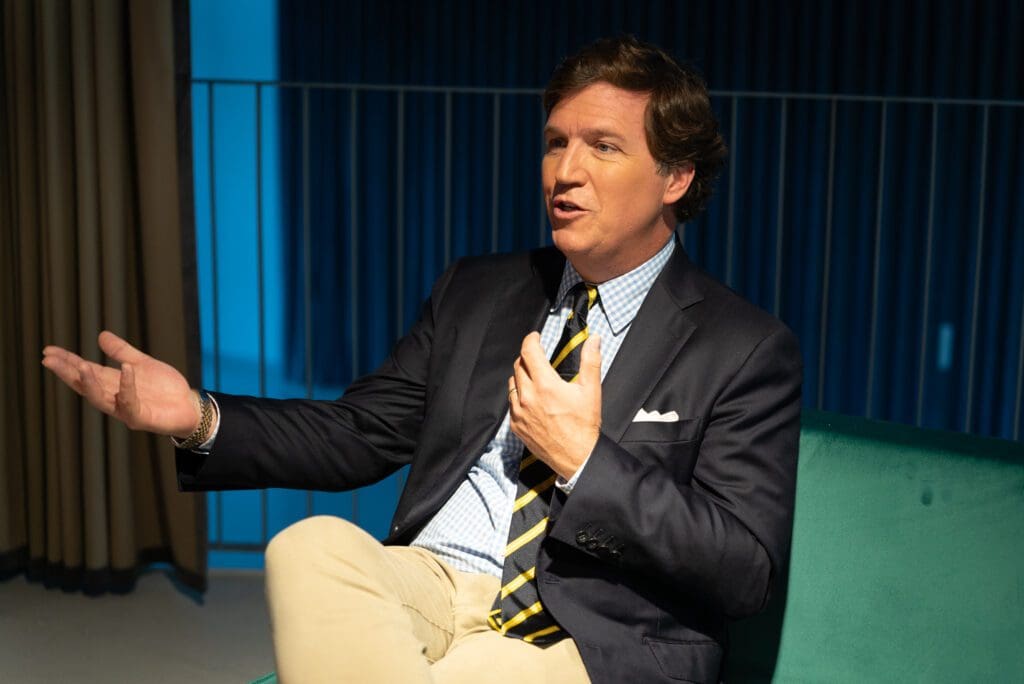
In turn, each proficient medium promotes itself as being invested in the pursuit of truth.
I still think that their job is to protect the people in power. They are what in Rome is known as the Praetorian Guard. They are bodyguards for the ruling class. And I think that’s shameful as I also think that many secretly are ashamed of themselves. I couldn’t have less respect for them. I don’t think of them as journalists—they are not.
So, what are they?
Obviously, they are paid publicists, the PR operation for the oligarchs in our society. For example, for our pharmaceutical companies. They did a lot of damage to the population with their so-called COVID-19 vaccines. The story, however, is not covered, only because the largest advertisers in many media organisations are those pharmaceutical companies. They should be informing their viewers about the reality of these drugs, but they do not, because they are taking money from the pharma companies. And the same applies to Ukraine: despite their moral obligation to tell the truth about what is happening in Ukraine, what we are spending, where is the money going—they refuse to do so.
Your Orbán interview from your last visit gained rapid popularity—last time I checked, it had around 7 million views—even though some media outlets depict Hungary as being somewhat isolated and disliked. What do you think made your content about Hungary so captivating?
How do you measure dislike, it’s hard to tell. Isolated you can measure. Hungary has seven international neighbours—it shares the border with seven different countries. Hungary is a small country with ten million people. This means that your government has to remain in constant negotiations with all seven neighbours. And one of them happens to be Ukraine in fact. So isolated? Whatever you think of Hungary, it’s not isolated—it is the opposite. It is in the centre of Central Europe. Its international concerns are at the forefront of what your government does.
Let us expand our perspective: how about the United States?
The United States is indeed geographically isolated. You know I am 55. I grew up in the country. I know a lot about the United States. US is the definition of ‘isolated’. Because our neighbours are Canada and Mexico—neither of which plays any role in the thinking of most Americans. This means that we don’t have a sense of what’s going on in the rest of the world.
Really? How is this possible?
I know that because I travel. And you go to other countries and they bare no resemblance to what they are told they are—at all. And entire wars can be fought in the middle of Eastern Europe and if you live in the United States, you have no idea what is really happening there. If you ask any person in Central and Eastern Europe about who is winning the war in Ukraine, not one per cent will tell you that it is Ukraine. Maybe they want Ukraine to win, as many may, maybe the most probably do, but Ukraine is not winning. And the average American thinks it is.
What is your guess, why?
This is because the US is physically isolated and our media landscape is so controlled by so few that it makes it possible to lie to 350 million Americans. You can make sure that in the US the ‘up’ is ‘down’, the ‘black’ is ‘white’ and ‘nighttime’ is ‘daybreak’ in fact. It’s actually scary.
Turning back to geopolitics: what objectives should the US pursue in light of its—as you said— isolation? Is it advisable for the US to leverage its full range of military and economic capabilities, or would it be wiser for the US to disengage from certain global matters?
Well, the United States can not disengage, because this is a war between the US and Russia. And unfortunately for Ukraine, against whom I bear no grudge, it’s been caught in the middle of this proxy war. It’s not a war between Ukraine and Russia; it’s a war between the United States under the veil of NATO against Russia led by the Biden administration for reasons that are incomprehensible to me, and deeply irrational. So, the United States could force peace in Ukraine even tonight.
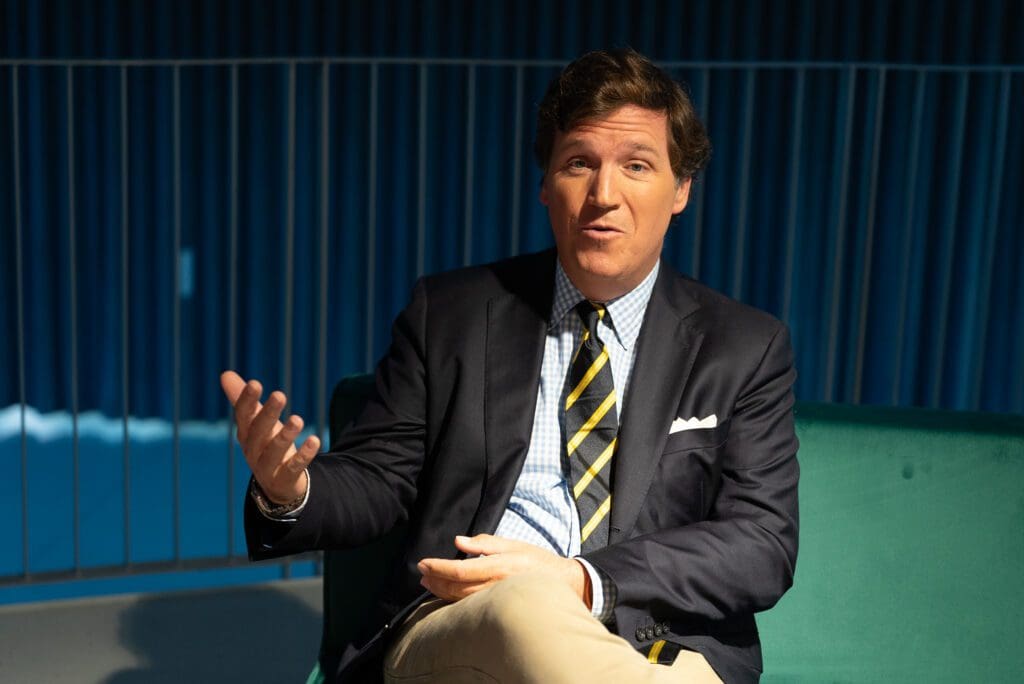
President Zelenskyy might also have a few words to share about that, don’t you think?
President Zelenskyy is in a very tough situation. I think he would face physical harm if he tried to negotiate peace for his own party. But the United States could protect him and force peace. And it should! Because the consequences of letting this continue will be the further destruction of the country and the killing of its own male population as it is already happening. Ukraine is going to run out of troops. Meanwhile, Russia has a hundred million more people than Ukraine does and a deeper military manufacturing capacity. So, Russia, over time will win, because a heavier object will always weigh more – its physics you know. Or worse, it can easily end up in a nuclear conflict.
Please elaborate on this, since Ukraine does not have nuclear weapons in its arsenal.
If all of this continues, someone is going to fill the breach. And that will be NATO troops, American troops, Polish troops etc (let me note that it will not be Hungarian troops according to your prime minister). All in all, someone will have to fight Russia instead of Ukraine, because the latter is running out of men. So, that is a nightmare and you might wonder why.
While our conversation unfolds, I can’t help but ask: What do you think, is it still viable to discuss a sovereign entity referred to as Ukraine?
Well as you know, what Ukraine is has been up for grabs for many hundreds of years. Many Americans for example trace their ancestry to ‘Russia’ with ancestors living in modern-day Ukraine. I mean it is just one measure of how the borders have changed continuously in the last century after 1918 and 1945. So, the borders are fluid. So, this question is a valid one: What is Ukraine? I mean there is Ukraine, there are Ukrainians, there is the Ukrainian language, and their own Orthodox Church, and there’s a Ukrainian seat of government in Kyiv. I am not denying the existence of Ukraine. I’m just saying that this question is a lot more complicated than defining the United States or even Hungary even though the borders of the latter have changed through the times. Now turning to sovereignty: for the purposes of war, Ukraine is not operating as a sovereign country. There are plenty of American military advisors in Ukraine right now, and NATO is waging war against Russia. The United States is fighting a war in Ukraine just as the US fought the Soviets and the Chinese in Southeast Asia for over ten years. Or I could cite Syria. If Russia were not in Syria, we probably wouldn’t be there either. These are proxy wars that every great power wages, as always has and likely always will. We should not be surprised by this, but also, we should not lie about this either and pretend that this is a fight of a democratic country.
Do you doubt that?
Ukraine is of course not a democracy. I am not saying that it is a bad place, but it is certainly not a democratic one. So, it is not a fight of a democracy against a superpower. It is a fight between superpowers and I really resent the lying about that. Simply because if you don’t understand what the terms are, then you can’t think clearly about what the problem is.

Speaking of proxies and diplomacy, my next question concerns the ideal role of an ambassador. If you’ve been catching up with the news, you might’ve heard that the US ambassador to Budapest has been actively politicising here, thus proceeding as one of the actors of the Hungarian domestic political debates. How would you comment on that?
I think the appropriate role of an ambassador is not to take boutique left-wing sexual politics and force them on a small country at gunpoint (laughs). And that’s what our ambassador is doing right now in Budapest. It is shameful for me as an American to know that I am paying that man’s salary. But to take a fashionable position on a tiny minority of Americans’ views on sexuality and force it on a smaller country was unimaginable even fifteen years ago. What you have been experiencing is called something like ‘cultural imperialism’. And at that time even the State Department understood that different countries have different mores and religions, languages and traditions. They are different countries after all! And that’s why we have diplomats in order to deal with them. The word ‘diplomat’ suggests ‘diplomacy’. I learn the language, I learn the culture—I don’t roll into a country and insult the ancient customs because that gets me nothing, except resentment and resistance. Diplomacy is to win your enemies, your allies and potential allies for your benefit. It’s not to act out the weird creepy agenda of some tiny democratic donor group at the human rights campaign by attacking someone’s thousand-year-old culture.
One last question: What is your message to your Hungarian audience?
You know my father worked for the US State Department in the 80s during the Cold War, when Hungary was an oppressed nation. I think the United States played a central role in liberating your country from that. And I think we won an awful lot of goodwill from Hungarians in the process. So, it makes me extremely embarrassed and sad as an American to see this envoy from the Biden administration coming here with bizarre sex politics, trying to push them on Hungarians for no reason that benefits American national security or the economy. It is not American in any way. So, in brief, I want to say I’m sorry.

